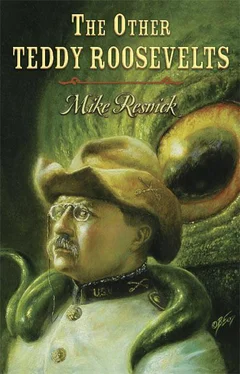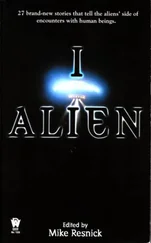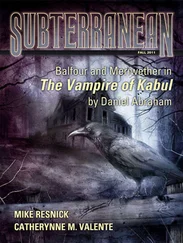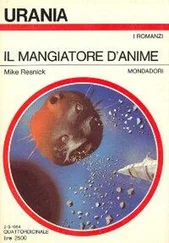He stopped by a newsstand to pick up a paper, was pleased to see that neither murder had been reported yet, and saw a full-page ad for the hot new bestseller, Dracula — the same book his officers had been talking about. He waited until the library opened, walked inside, picked up a copy, and skimmed the first sixty or seventy pages.
It was a flight of fancy. Well-written, though the man couldn’t hold a candle to Austen or the Brontes, or Americans such as Mark Twain or Walt Whitman. But the similarities between the fictional Dracula and the very real Demosthenes were striking, and finally he put the book back where he’d found it and began searching through the non-fiction section, trying to find the legends that Bram Stoker had used as his source material. It wasn’t easy. There were references to a Nosferatu, and to Wampyres, and to other creatures, but they were so far-fetched that he couldn’t see them being of any use. Still, they were something , and that was more than he could find anywhere else.
He carried a dozen source books to a table and began taking notes, researching the legend as meticulously as he researched ornithology or naval strategy. He created two columns. The first contained suppositions that three or more sources held in common. When he couldn’t find at least three, or when they were contradicted by another source, they were moved to the second column.
By late afternoon he had only two items remaining in the first column. Sooner or later every other “fact”, every supposition, had come into conflict with some other legend’s or purported history’s facts and suppositions.
It wasn’t much to go on, but he decided he couldn’t wait. Demosthenes wasn’t going to stop killing, but once he delivered O’Brien — and that was if he delivered O’Brien; he knew that no payment would made — there was every chance that Roosevelt would never see him again.
It would take perhaps half an hour to prepare, but although the sun was low in the sky, he didn’t really expect to see Demosthenes before midnight. His three other appearances had always been between midnight and dawn.
Roosevelt stopped by the apartment to have dinner with Edith. Then he finished his preparations, told Edith that he would probably be spending the night at the office, promised to find a cot and not sleep in his chair, and finally took his leave of her, after selecting a book to read, and stuffing a pile of personal correspondence that required answers into a leather case.
He reached the office at about 8:00 PM, told the policemen on duty to pass the word that if Demosthenes showed up, even if he was carrying a corpse, not to try to stop him. They looked at him as if he’d been drinking, but he was the Commissioner of Police and finally they all agreed.
Roosevelt entered his office, sat down at his desk, immediately pulled out and destroyed all existing copies of the photo of himself with Baldy and Eye-Patch. After all, he reasoned, they’d done their duty, even if no one had foreseen the consequences. An avid letterwriter, he spent the next three hours catching up on his correspondence. Then he picked up a copy of F. C. Selous’ latest African memoir and began reading it. He was soon so caught up in it that he didn’t realize he was no longer alone until he heard the thud of a body being dropped to the floor.
“O’Brien,” announced Demosthenes, gesturing toward the pale corpse.
“Why do you keep bringing them to me?” asked Roosevelt. “Our agreement has been abrogated.”
“I am bound by a different moral code than you.”
“Clearly,” said Roosevelt, barely glancing at the body. “I’d like you to tell me something.”
“If I can.”
“Did you kill Pericles and Sophocles too, or is this a recent aberration?”
A cold smile crossed the tall man’s face. “Ah! You know! But of course you would. You are not like the others, Mr. Roosevelt.”
“I most certainly am,” said Roosevelt. “I am a man. It is you who are not like the others, Demosthenes.”
“They are sheep.”
“Or cattle?” suggested Roosevelt. “You have relatives that live on cattle, do you not?”
Another smile. “You have done your homework, Mr. Roosevelt.”
“Yes, I have. Enough that I find it difficult to believe you ever suggested that the warrior who runs away will live to fight another day.”
“A misattribution,” said Demosthenes with a shrug. “I do not retreat — ever.”
“I don’t doubt it.”
“It nevertheless would have been good advice for you,” said Demosthenes. “I intuit that you think you know enough to harm me. Do not believe everything you believe you have learned. For example, it is said that a vampire may not cross over water, and yet I crossed the Atlantic Ocean to find fresh feeding grounds. They say the sunlight will kill me, yet I have walked down Fifth Avenue at high noon. They say I cannot enter a building without being invited, but you know that no one has invited me here.”
“All that is true,” agreed Roosevelt. “And it is all irrelevant.”
“I admire you, Mr. Roosevelt. Do not do anything foolish that will force me to harm you.”
“You are not going to harm me,” said Roosevelt, getting to his feet.
“I warn you…” said Demosthenes.
“Save your warnings for those who are afraid of animals,” said Roosevelt. “I told you before: I am a hunter.”
“We are both hunters, each in our own way,” said Demosthenes. “Do you think to slay me with your fabled Winchester rifle?” he added with a contemptuous smirk.
“No,” answered Roosevelt, picking up his weapon and positioning himself between Demosthenes and the door. “We both know that bullets have no effect on you.”
“Ah!” said Demosthenes with a smile. “You expect to beat me to death with your walking stick?”
“I have a motto,” said Roosevelt. “Thus far I’ve shared it with very few people, but someday I think I shall make it public, for it has served me well in the past and will serve me even better tonight.” He paused. “It is: Speak softly and carry a big stick.” He removed the metal tip from his wooden walking stick, revealing the sharp point that he had whittled earlier in the evening. “ This is my big stick.”
“So you’ve learned that much,” said Demosthenes, unperturbed. “Has any of your research told you how to drive a wooden stake into the heart of a being with fifty times your strength?”
“Let’s find out,” said Roosevelt, advancing toward him.
Demosthenes reached out confidently and grabbed the walking stick with his right hand. An instant later he shrieked in agony and pulled his hand back as the flesh on it turned black and began bubbling.
“The wooden stake was not the only thing I learned this afternoon,” said Roosevelt. “I took the liberty of rinsing my walking stick with holy water on the way here.”
Demosthenes uttered a scream of rage and leaped forward. “If I die, I will not die alone!” he snarled as the point of the stick plunged deep into his chest and his hands reached out for Roosevelt’s throat.
“Alone and unmourned,” promised Roosevelt, standing his ground.
A minute later the creature named Demosthenes was no more.
* * *
It didn’t take long for new kingpins to move into the positions vacated by Pascale, Zuckerman and O’Brien. Somehow, after Demosthenes, they didn’t seem like the insurmountable problems they might have been a month earlier.
The Commissioner of Police looked forward to the challenge.
1898:
The Roosevelt Dispatches
On the way home from the 1994 Worldcon in Winnipeg, Kevin Anderson approached me in the airport and asked me to write a story for his anthology, War of the Worlds: Global Dispatches . Each story in the book would proceed on the premise that H. G. Wells’ Martian invasion had actually occurred, and various historical characters would have to react to it.
Читать дальше










